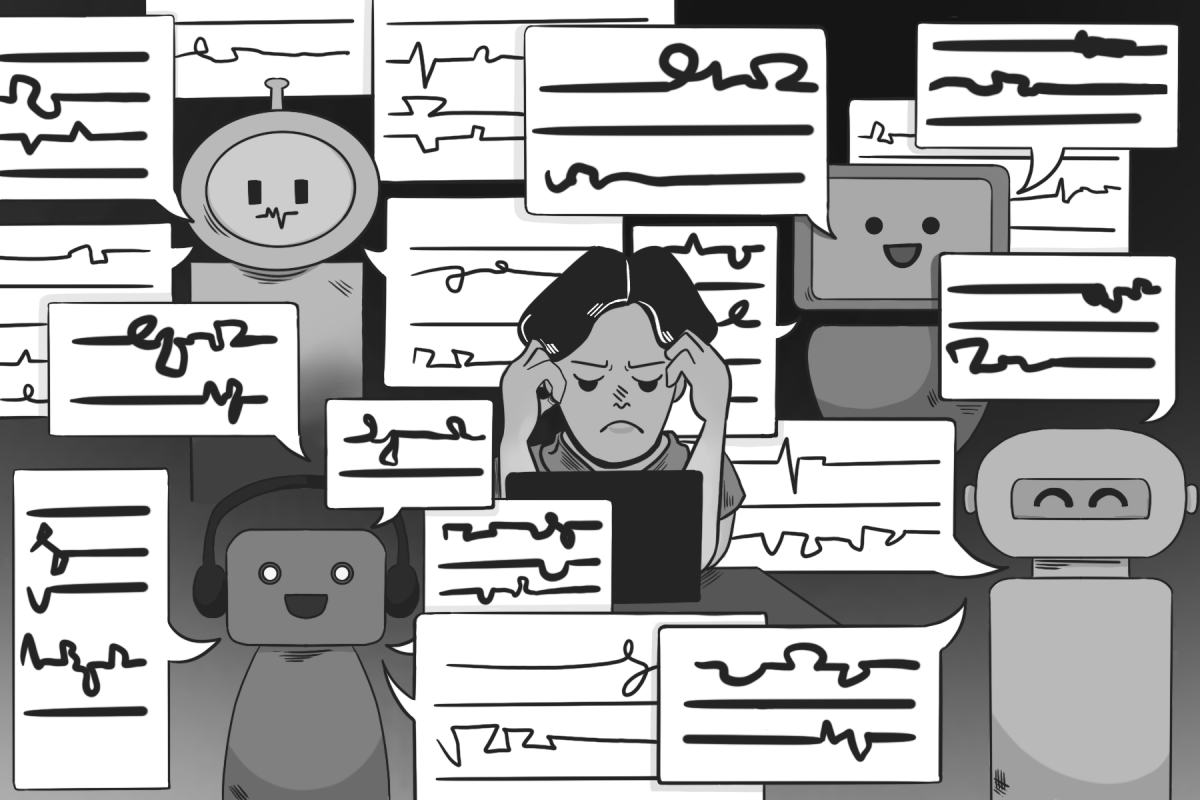The proliferation of artificial intelligence (AI) in almost every corner, digitally and culturally, has exhausted consumers, quickly growing tired of its increased presence. As users turn to AI to fulfill simple requests, organizations have increasingly incorporated it into their websites. While useful and convenient to some degree, AI has become virtually impossible to escape; its usage is quickly becoming redundant across various forums and platforms. By becoming more impractical than intended, AI’s inescapable presence attempts to solve non-existent issues, acting as a persistent pain for users.
Variations of AI models have increased rapidly in the past few years, ranging from Google’s integration of the AI platform “Gemini” to chatbots built into AI software such as Class Companion. AI consumption has become an integral part of daily life for many, but this rapid evolution of technology has proven to be environmentally harmful. Requests on ChatGPT use 10 times the amount of electricity a Google search does — carelessly implementing it in the name of “convenience” recklessly harms the planet, ignoring solution-driven development. As companies race to create more AI technology and advance its efficiency, their priorities wrongly fall within these investments rather than sustainability.
AI chatbots have evolved beyond just answering questions; they now fill online service roles, requiring extensive programming intended to support customers. However, the bots, guided by their training, can never replicate the depth of human understanding and personality that are essential to customer service. Chatbots are lackluster solutions to making these jobs more ‘efficient’; instead they leave roles shorthanded, pointing to a company’s dwindling resources and lack of drive to support its customers.
Beyond its incorporation in websites, though, the acceptance of AI online has also prompted developers to meet demand by using finite, public data for training, inciting fear and concerns in users whose plethora of previously posted works can be used to train generative AI. However, despite federal laws protecting private data, users have concerns over terms and policies that may exploit it to continue developing AI. Society’s overreliance and obsession with AI must be addressed before it supersedes the defined lines of safety and privacy.
Despite its degrees of usefulness and convenience to daily life, AI comes at a high cost that just can’t be justified. Its exacerbation of environmental concerns and use of human data for its training are beginning to plague the conversation around it, adding to its impracticability overall.
An AI tool in every corner and surface of the internet is not an essential part of societal development and instead should be used sparingly. Society must take a step back in order to regain its independence from dull and unoriginal instruments oversaturating the internet.

















































